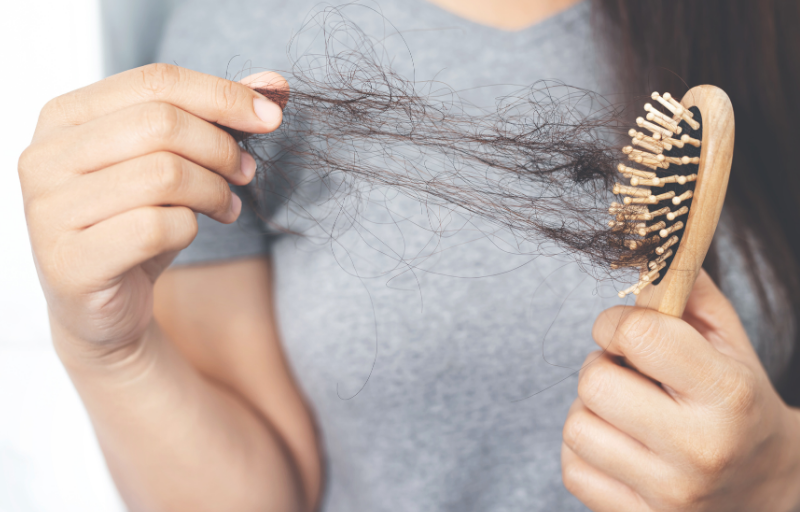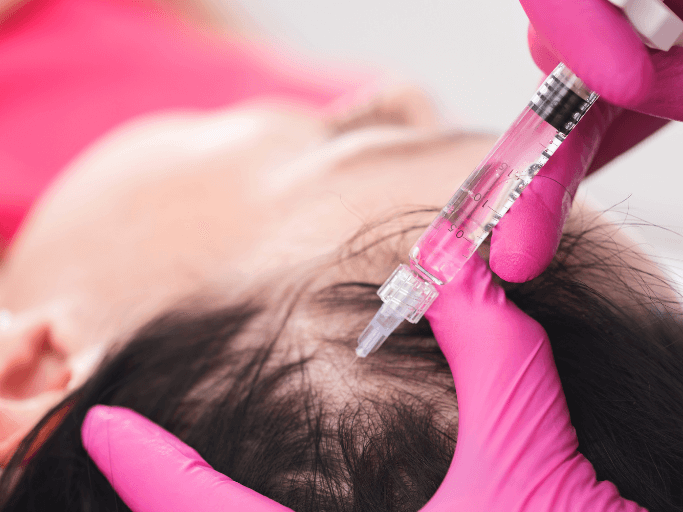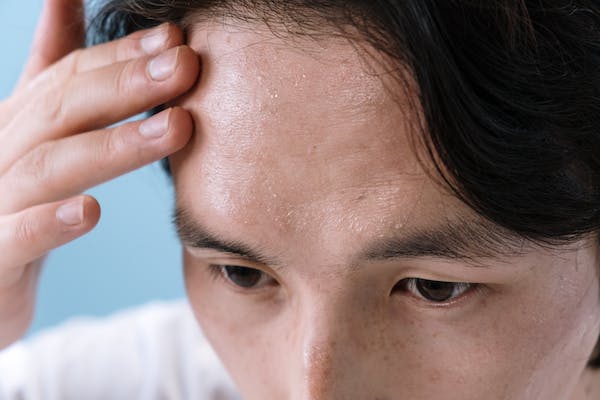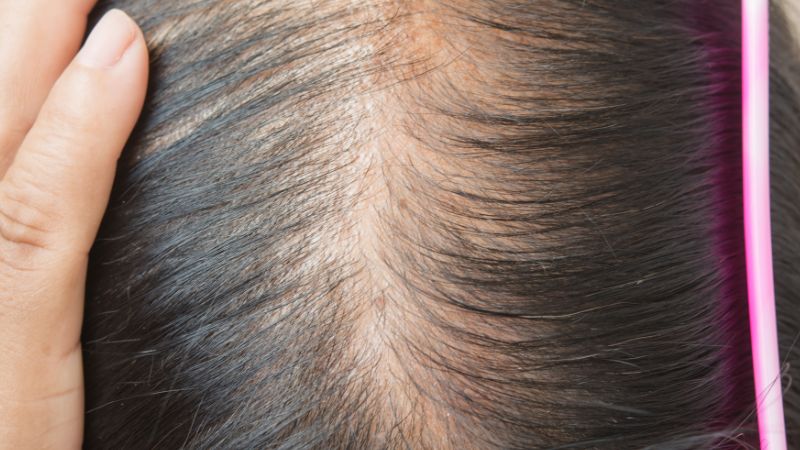A lush mane of hair is often associated with vitality, confidence, and beauty. However, for many individuals, the relentless struggle against hair loss is a daily battle. Hair loss can affect anyone, regardless of age, gender, or ethnicity, and it can take a significant toll on one’s self-esteem and overall well-being.
In this comprehensive blog, we will delve into the intricate world of hair loss, exploring its causes, symptoms, prevention strategies, and hair loss treatment for women options. Whether you’re facing the early signs of hair loss, seeking to understand the factors that contribute to it, or simply curious about how to maintain a healthy head of hair, this guide is designed to provide you with valuable insights and practical advice.
So, if you’re ready to unlock the secrets to lustrous locks and gain a deeper understanding of the complex hair loss issue, read on. We’ll equip you with the knowledge and tools you need to embark on your journey towards healthier, happier hair.
Symptoms of Hair Loss
Hair loss treatment for women is a topic of great concern, as it can profoundly impact self-esteem and overall well-being. Whether you’re experiencing hair thinning, bald spots, or rapid hair shedding, there are several effective treatment options available to help women regain their confidence and maintain a healthy head of hair.

1. Topical Treatments for Hair Loss in Women
Topical treatments, such as minoxidil, are commonly recommended for women experiencing hair loss. Minoxidil is an FDA-approved over-the-counter medication that comes in the form of a liquid or foam. When applied to the scalp, it can stimulate hair growth and increase the thickness of existing hair. It’s essential to use minoxidil consistently to see results, as discontinuing its use can lead to hair loss recurrence.

2. Prescription Medications
In some cases, a healthcare provider may prescribe medications like finasteride, which is primarily used to treat male pattern baldness but can also be considered for certain women with hair loss. It’s essential to consult a doctor to determine if this medication is suitable for your specific condition, as it may not be recommended for women of childbearing age.
3. Platelet-Rich Plasma (PRP) Therapy
PRP therapy involves drawing a small amount of the patient’s blood, processing it to concentrate the platelets, and then injecting this platelet-rich plasma into the scalp. PRP contains growth factors that can stimulate hair follicles and promote hair regrowth.

4. Low-Level Laser Therapy (LLLT)
LLLT devices, such as laser combs or helmets, emit low-level laser light that can stimulate hair follicles and improve blood circulation to the scalp. Some women have reported positive results with LLLT as part of their hair loss treatment regimen.
5. Nutritional and Lifestyle Changes
Nutrition plays a crucial role in hair health. A nutrient-dense diet comprising vitamins, minerals, and proteins is essential for promoting healthy hair growth. Additionally, managing stress and maintaining a healthy lifestyle can help reduce hair loss caused by factors like stress or Hormonal Changes.
6. Hair Restoration Procedures
For more severe cases of hair loss, women may consider hair restoration procedures like hair transplants. These procedures involve transplanting hair follicles from one area of the scalp to areas with thinning or no hair. Hair transplants offer a durable solution for those struggling with hair loss.
Prevention
The following measures can prevent you from hair loss and best hair fall solutions :
Be Cautious of Medications
When it comes to maintaining a healthy head of hair, it’s essential to be mindful of the medications you’re taking. Some drugs can have the unwanted side effect of causing hair loss. If you notice a hair fall as a result of your medication regimen, it’s crucial to act promptly. Contact your healthcare provider and discuss the possibility of substituting the problematic medication with an alternative that won’t jeopardize your locks. Taking swift action can help prevent further hair loss and ensure your overall well-being.

Avoid Direct Sunlight
While sunshine is a delightful part of life, exposing your hair to direct sunlight for prolonged periods can have detrimental effects. Harmful ultraviolet (UV) radiation from the sun can weaken your hair and lead to damage such as dryness and brittleness. To safeguard your precious locks, consider wearing a hat or using hair products with UV protection when spending time outdoors. This simple precaution can go a long way in preserving the health and vitality of your hair.

Avoid Stress
Stress is a silent adversary that can wreak havoc on your overall health, including the condition of your hair. High stress levels can contribute to hair loss and other hair-related problems. To keep your hair healthy and your mind at ease, it’s crucial to manage stress effectively. Incorporate relaxation techniques, such as meditation, yoga, or deep breathing exercises, into your daily routine. By reducing stress, you can help prevent hair loss and enjoy a fuller, more vibrant mane.

Avoid Smoking
Hair loss treatment for men is a topic of significant concern for many individuals. If you’re a smoker, it’s worth noting that there is a concerning link between smoking and baldness in men. Research has suggested that smoking can contribute to hair loss, particularly male pattern baldness. While the exact mechanisms are complex, it’s clear that smoking can have adverse effects on hair follicles and overall hair health.

Also Read: Best Ancient Home Remedies for Thin Hairs
Best Hair Loss Treatment
The best hair loss treatment for you depends on several factors, including the cause of your hair loss, your gender, and your individual preferences. Here are some of the most effective hair loss treatments:

Minoxidil (Rogaine): Minoxidil is an FDA-approved topical medication available over the counter. It’s known to promote hair growth and is suitable for both men and women. Minoxidil is available as a liquid or foam and needs to be applied directly to the scalp. It’s a popular choice for many because of its accessibility and proven effectiveness.
Finasteride (Propecia): This prescription medication is specifically for men and is taken orally. Finasteride works by inhibiting the hormone dihydrotestosterone (DHT), which is a major contributor to male pattern baldness. It can slow hair loss and promote hair regrowth in some men.
Platelet-Rich Plasma (PRP) Therapy: PRP therapy involves drawing a small amount of your blood, processing it to concentrate the platelets, and then injecting it into the scalp. The growth factors in PRP can stimulate hair follicles, potentially leading to hair regrowth.
Low-Level Laser Therapy (LLLT): LLLT devices emit low-level laser light to the scalp, which is believed to stimulate hair follicles and promote hair growth. LLLT can be used at home with devices like laser combs or helmets.
In conclusion, hair treatment for hair loss is a widespread concern with diverse options available, from medications like minoxidil and finasteride to innovative therapies like PRP and LLLT. Consultation with a healthcare professional is crucial for personalized guidance. By taking proactive measures and staying informed, you can embark on a journey toward healthier, more confident hair. Remember, your unique circumstances will determine the most effective approach, so be patient and determined in your quest for vibrant, resilient locks.
Thanks for reading our blog
I hope you found useful information in our blog. We appreciate your crucial time if you find it exclusive Please give us your suggested feedback. To find more blogs Go to the Home Page
